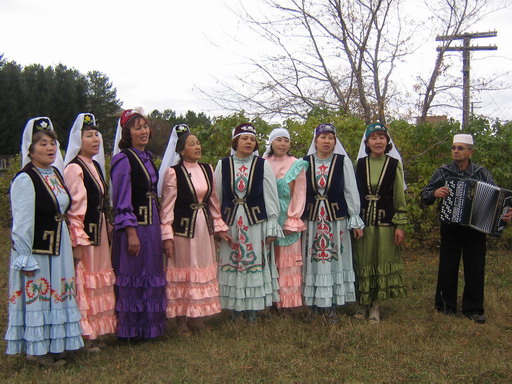The future of the Tatars in Russia
As pressure grows from Moscow for the only ‘official and patriotic language’, Russian, Tatar intellectuals are discussing the ethnic prospects of their own and other ‘minor peoples’ within the Federation.
Moscow (AsiaNews) - In the debate on the prospects of Russia's minor peoples, a leading Tatar-Russian academic, Robert Nigmatullin, a member of the national council of the World Congress of Tatars, spoke on the Intertat portal in an optimistic tone on the subject ‘Even if the language disappears, the Tatars will never disappear’.
His rosy predictions were answered on Idel.Realii by another expert on federal relations, Kharun Sidorov, who considers ‘the ethnic perspectives of the Tatars and other peoples important’, but with a much less positive outlook.
The thesis of the physicist and oceanologist Nigmatullin, in his dialogue with journalists, compares the survival of the forcibly ‘Russian-speaking’ Tatars to the fate of peoples such as the Peruvian peoples in Latin America, forced to adopt the Spanish language without completely losing their identity.
Sidorov notes, however, that ‘Peruvians are a political rather than an ethnic definition, like Russians rather than Tatars. True indigenous people or ‘Indians’, a term banned in Peru as offensive, try to speak in their original language, while the Spanish language defines ‘mestizos’ and ‘creoles’, mixed peoples who do not retain historical memory.
Nigmatullin's vision seems to tend more towards mestizaje than the preservation of native traditions. All that would remain would be ‘the names and surnames, the memory of partial Tatar roots’, quoting the words of Vladimir Putin's ‘unofficial’ wife, Alina Kabaeva, who during the city of Kazan's millennium celebrations boasted of her ‘half-Tatar’ origins, despite not knowing a word of the Tatar language. Something of this will also remain with the president's children, whose existence only came to light in recent days.
Sidorov also recalls the experience of Israel, which with its repatriation agency Sokhnut gathers all those who have some second or third generation Jewish ancestors or close relatives, especially spouses, to settle in their homeland. In this case, the aim is to ‘reabsorb these people into the Jewish ethnic community, re-establishing knowledge of the language and culture until citizenship and permanent relocation, or at least regular presence in the country’.
The core of ethnic sociality thus presupposes a basic ‘integral identity’, which allows those who have lost it or in fact never had it to be reabsorbed into it. While this may be the optimistic dimension of Nigmatullin's vision, for Sidorov and other commentators ‘the ethno-political and ethno-cultural reality of today's Russia does not allow for this positive conclusion. The Jews at least have their own sovereign state, while the ambitions of Tatarstan and Bashkortostan, the two Tatar republics of Russia, are continually frustrated by the limitations imposed by Moscow.
Sidorov points out that even the autonomist regions of various countries, such as Catalonia, Quebec or South Tyrol, respect local languages on a par with the national language, while in Russia there is increasing pressure for the only ‘official and patriotic language’, Russian, despite the fact that in both the regional and federal constitutions, Tatar is recognised as the national language, on a par with Russian. Thus, the slogan that ‘the people will not die with the language’ appears as an attempt to save the ethnic spirit by submitting to colonial rule, assigning the Tatars of Russia the future of ‘Creole-Russian mestizos’.
Nigmatullin even states that ‘without the Tatars, Jews, Caucasians and others, one cannot understand Russia itself’, seen as an ‘all-encompassing civilisation’ and not mono-ethnic, as China can be seen in part, despite having many different nationalities within it. Sidorov insists on comparing Russia ‘to Peru more than to China’, seeing it as a return to colonial policies of the past, when it seemed that after the end of the USSR all peoples had regained their self-awareness, inside or outside the Russian Federation.
Photo: Jaimerimummi







.png)










